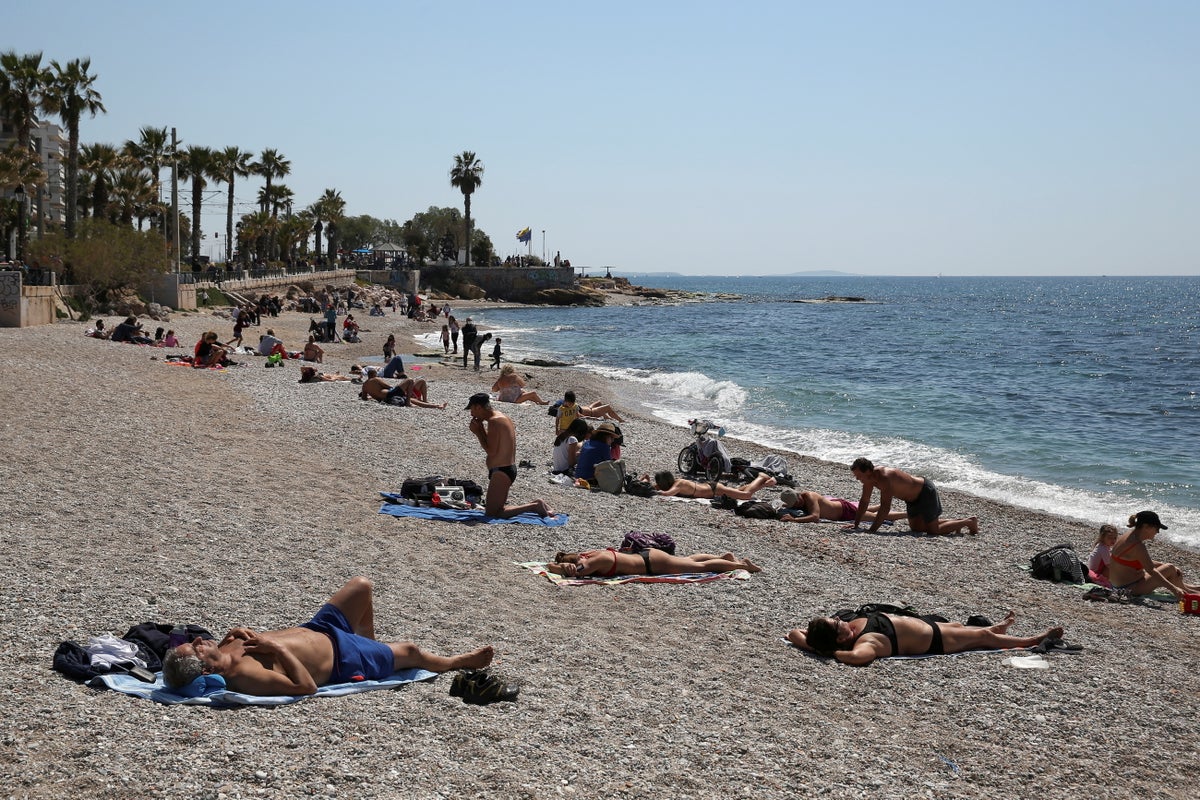
Support truly
independent journalism
Those going to Greece for their summer holidays have been warned of a spike in Covid cases related to the new FLiRT variant.
The increase has been reported by the Mediterranean country over the last 20 days.
In its latest report Greece’s National Public Health Organization, EODY, said it had seen an increase in hospital admissions, with 669 new Covid patients admitted from July 8 to 14, 2024. The report adds that this was a 44% increase in the average weekly number of new admissions over the previous four weeks.
In total 26 Covid deaths were recorded.
Greece has recently stuggled with heatwaves that has left many vulnerable people shieding from high temperatures inside.
Last week the Metaxa Oncology Hospital in Piraeus, the port area of Athens, reintroduced masks and other protective measures within its wards.
Visitors are limited to two per patient and there is a 48-hour rapid test requirement for those visiting.
Hospital Director Sarantos Efstathopoulos announced the measures to safeguard its patients, adding that they will be reassessed on July 29.
President of EINAP Matina Pagoni told the Greek television network MEGA: “It’s summer, we’re going on vacation, we never said the coronavirus was gone. The truth is that this year, compared to last year, the cases have nothing to do with it. There are too many, there are many hospitalisations and also deaths. 21-22 deaths are too many.”
According to EuroNews the city of Thessaloniki has seen a rise in cases reported through sewage testing.
Bulgaria, who shares a border with Greece, issued a warning to any of its residents visiting the country this summer. On the number of cases in Greece, the Bulgarian Ministry of Foreign Affairs added: “In this regard and considering the large number of Bulgarian citizens visiting the country during the summer period, the Ministry of Foreign Affairs recommends strict compliance with preventive and hygienic measures in the context of the spread of the disease.”
The Association of Hospital Doctors’ Union of Athens and Piraeus (EINAP) warned that the outbreak of the coronavirus is expected to continue until the end of July.
UK health experts have suggested that FLiRT and LB.1 might be able evade immunity, which is why people who have been vaccinated are still getting ill.
“Increased travel and big events such as festivals often result in crowded settings where the virus can spread more easily, and there are no longer any legal restrictions like wearing masks or social distancing,” says Dr Mariyam Malik, an NHS and private GP at Pall Mall Medical.
“The FLiRT variant has specific changes in its spike protein that might make it spread more easily and dodge immunity from past infections or vaccines,” Dr Malik added. “Similarly, the LB.1 variant has mutations that help it spread and possibly weaken the protection we get from previous immunity, making these variants different from earlier versions of the virus.
“New variants come about because the virus naturally changes over time,” added the GP. “When lots of people get infected, the virus has more chances to mutate. Also, our immune responses from past infections or vaccines can push the virus to evolve.”
The symptoms of the FLiRT and LB.1 variants are generally like those of earlier Covid-19 strains. Common symptoms include fever, cough, fatigue, loss of taste or smell, sore throat, muscle or body aches, shortness of breath, headache, and a runny nose.
Last week, the World Health Organization released a statement indicating Covid-19 is still responsible for around 1,700 deaths per week globally. WHO encouraged vulnerable populations to get vaccinated.







